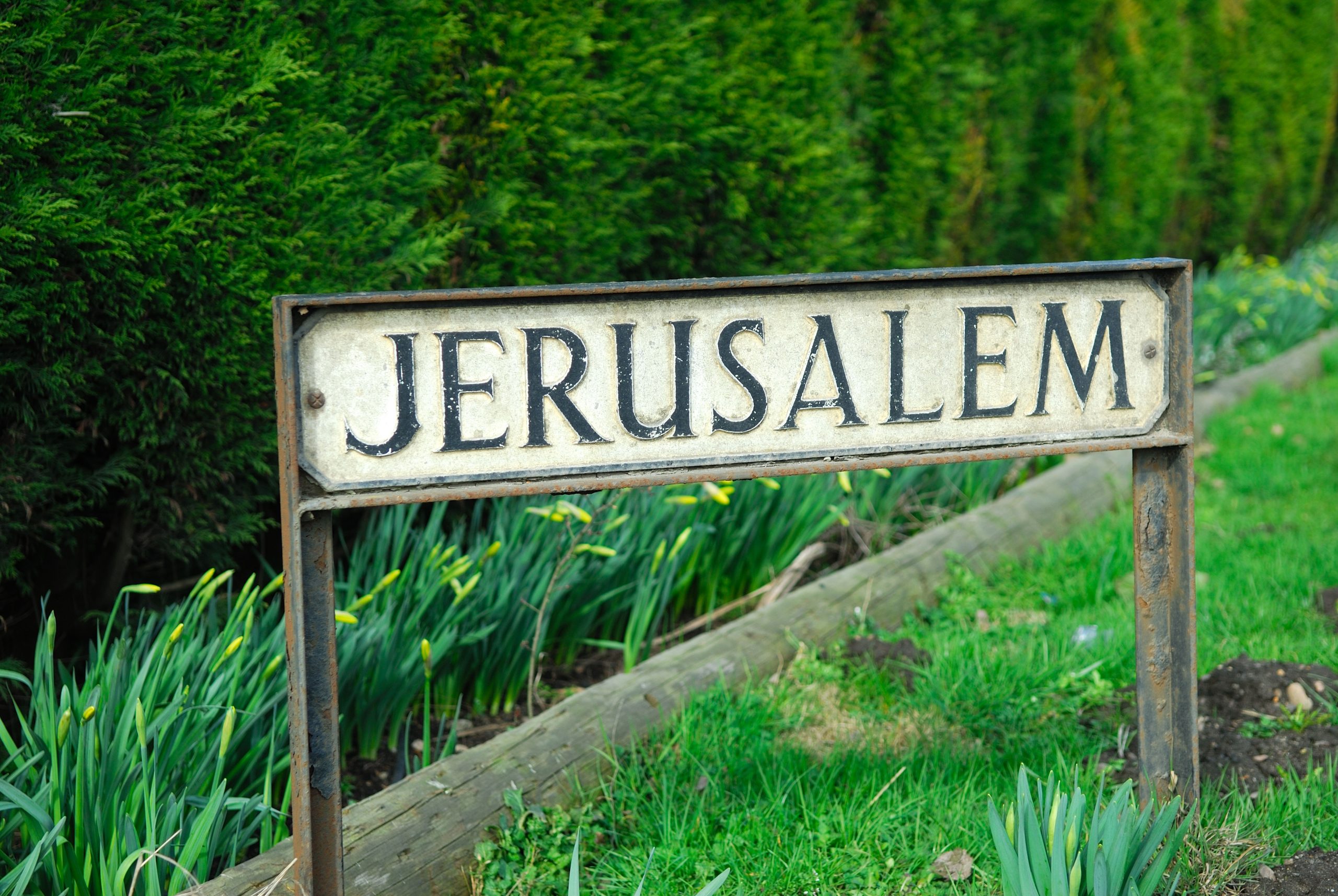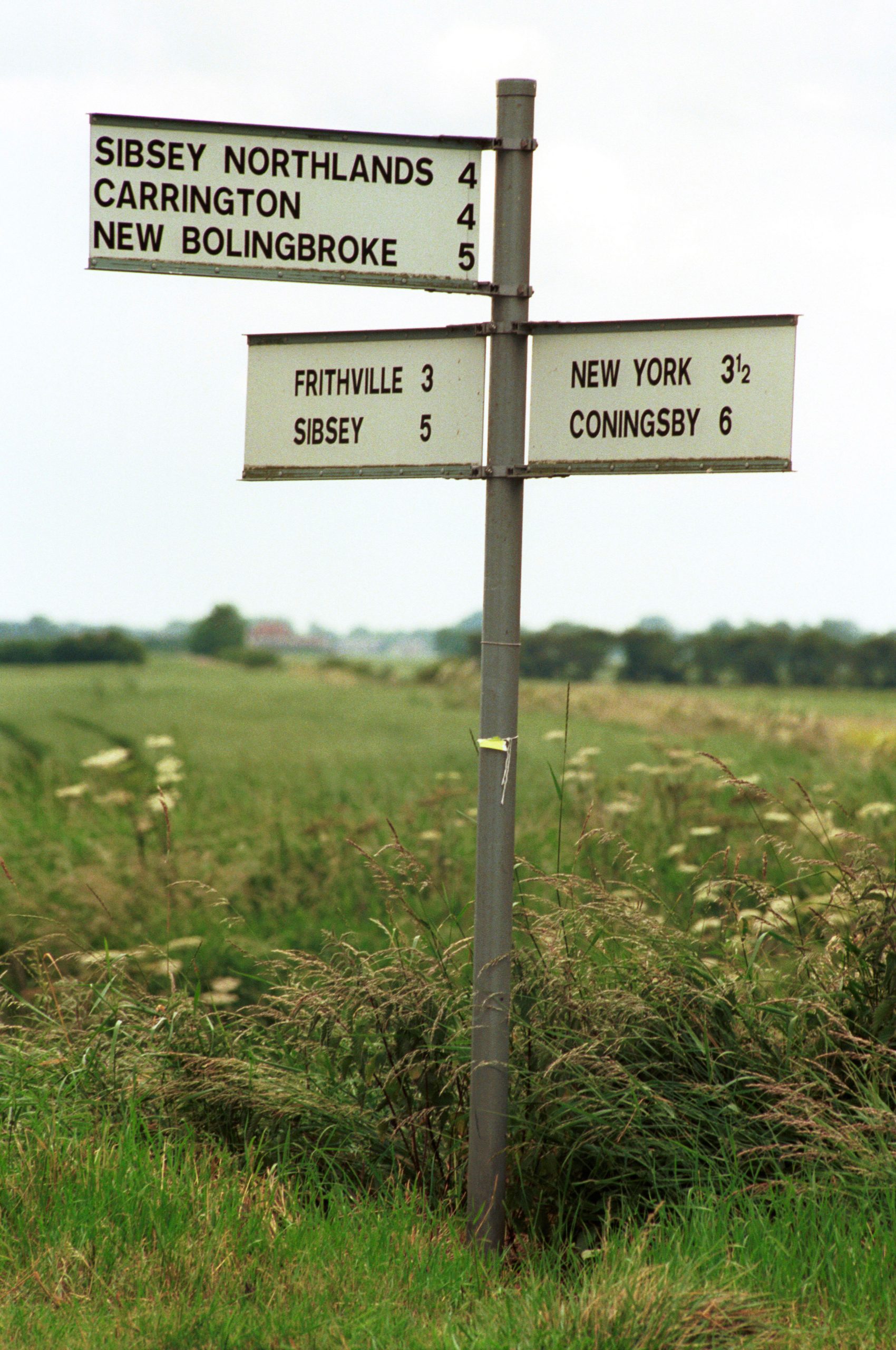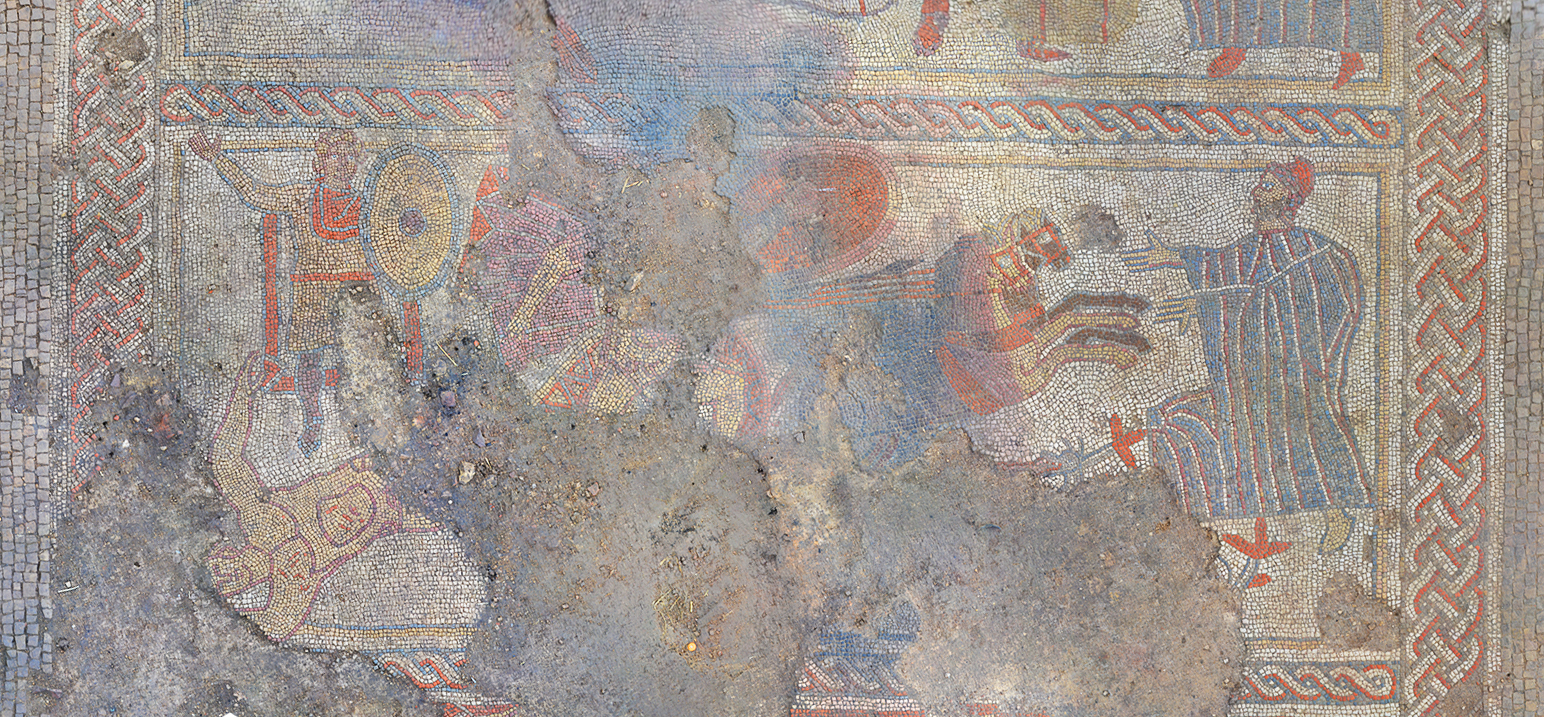Britain's oddest place names: How you can visit New York, Hollywood, Jerusalem and New Zealand, all without leaving the country
The quirky place names of Britain have been borrowed and re-used all across the globe. Eleanor Doughty picks out some of the best.

About 10 miles from Boston, down a rural B road, lies a curious little village with a former Methodist church at its crossroads: New York. Yes, New York — but not the city on the east coast of America.
The tiny village — the primary school, explains Alan Harrison, a local farmer whose family has lived in New York since 1842, has about 40 pupils — sits within the parish of Wildmore in Lincolnshire, itself within Wildmore Fen, one of the last fens to be drained in about 1802.
‘The village doesn’t appear on any maps before 1800 and, apparently, the navvies who dug the drains came from York,’ advises Mr Harrison — hence ‘New York’. ‘That’s the most plausible reason we’ve heard for the name.’
Matt and Melinda Jones are among the few New York neighbours of Mr Harrison and his wife, Janet. They moved to New York from London in 2018, when they bought the Methodist church.
‘My friends from the South are quite amused that we live somewhere called New York,’ says Mrs Jones. ‘We refer to ourselves as “the little apple”, because there’s “The Big Apple” and then there’s us.’
"Baldock, Hertfordshire, was founded by knights returning from the crusades. ‘The name Baldock is the late-medieval form of 'Baghdad'"
New York isn’t the only curiously named village in the country — or, indeed, in the county. Driving from the A46 on the way to Doddington Hall, Lincoln’s closest country house, one passes a sign that clearly reads ‘Jerusalem’.
The name of this hamlet derives from the 15th-century pilgrimages that were taken to the Jerusalem of Biblical fame, explains Simon Sebag Montefiore in his 2011 book Jerusalem: The Biography.
Exquisite houses, the beauty of Nature, and how to get the most from your life, straight to your inbox.
The actual Jerusalem being too far-flung for the average medieval family, Lincolnshire’s own sprung up. This should come as little surprise: England is full of unusual place names, says John Baker, a lecturer at the University of Nottingham and part of its Institute of Name-Studies.
Some are named after pubs — such as Shropshire’s Craven Arms — and others, such as Jerusalem, ‘reflect people’s horizons at the time of naming’.
Often, explains Dr Baker, the more obscure place names began ‘as minor names within a parish — names given to, for example, a field that was furthest away. It was a jokey way of saying this was a long way away’.
This might explain Land of Nod, a hamlet west of Beverley, East Yorkshire, which sounds more like the sort of thing nanny might say to encourage sleep than a place. It probably comes from the Biblical Land of Nod, where Cain was exiled for killing Abel.
Dr Baker’s favourite is the market town of Baldock, Hertfordshire, which was founded by knights returning from the crusades. ‘The name Baldock is the late-medieval form of “Baghdad”, so Baldock is actually Baghdad [the capital of modern-day Iraq]. It’s a transferred name, an early equivalent to Boston in America,’ he advises.

Other names are entirely fictional. Take Westward Ho!, the only place name in Britain to contain an exclamation mark. Shortly after Charles Kingsley’s novel of the same name was published in 1855, a hotel called the Westward Ho!-tel was opened to encourage tourism.
‘Westward Ho! was created, rather than evolving,’ says Caroline Taggart, author of The Book of English Place Names. ‘The first thing called Westward Ho! was the hotel and the name expanded to the town that grew up around it.’
In the Birmingham suburb of Hollywood come tourists of a different kind. The name, says Keith Yates, who has lived in Hollywood for 40 years, comes from the flora that once occupied the area: ‘There was once a deciduous wood here with holly in it.’
At the edge of Hollywood there is, as in the Californian neighbourhood, a Hollywood sign. ‘I think the other Hollywood probably has more pictures taken of its sign than ours does,’ concedes Mr Yates.
The name game
- Cold Aston in Gloucestershire, which was also known as Aston Blank until 1972, is the only English village with two official names
- One tale of how Pity Me, Co Durham, was named relates to monks escaping from Lindisfarne with St Cuthbert’s coffin. When they dropped the coffin, the saint’s corpse allegedly cried out: ‘Pity me!’
- Arthur Wellesley, the future Duke of Welling- ton, had his title chosen for him by his brother William, having ransacked the Peerage and examined the map. ‘I trust that you will not think there is anything unpleasant in the name of Wellington,’ wrote William to his brother. ‘I think you have chosen most fortunately,’ replied the future Duke
- New Zealand, a hamlet in Wiltshire, was probably named for local landowner Sir John Dickson-Poynder, governor of New Zealand in 1910–12
- The Yorkshire Wolds village of Wetwang sits at a crossroads, probably explaining how it got its name—originally ‘Vertvanger’, the Viking name for ‘meeting place’

The 'unique' mosaic discovered at a Roman villa in Rutland that 'puts the county on a national and international stage'
Excavations at a Roman villa in Rutland have discovered a magnificent mosaic that is believed to be unique in Britain.